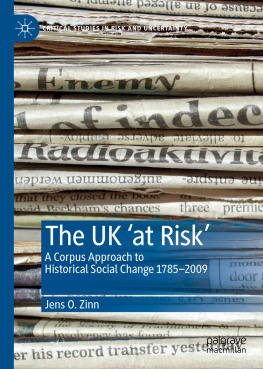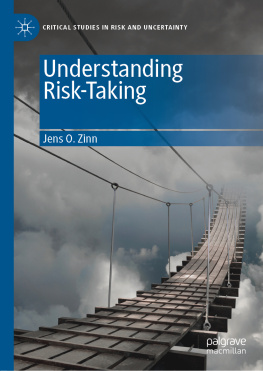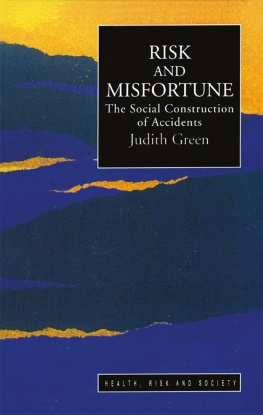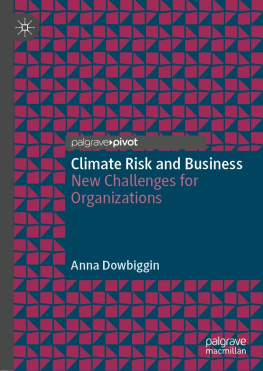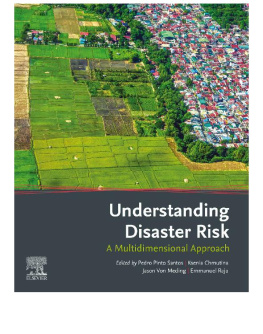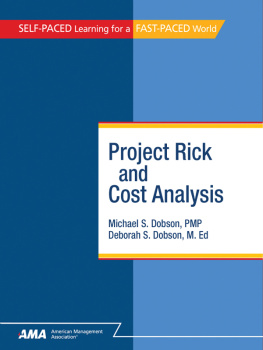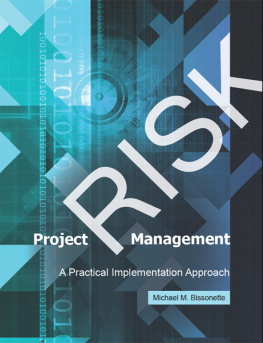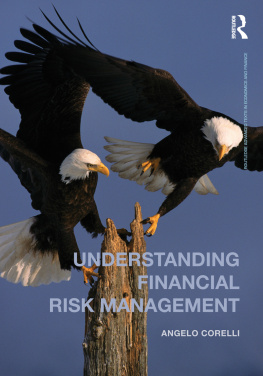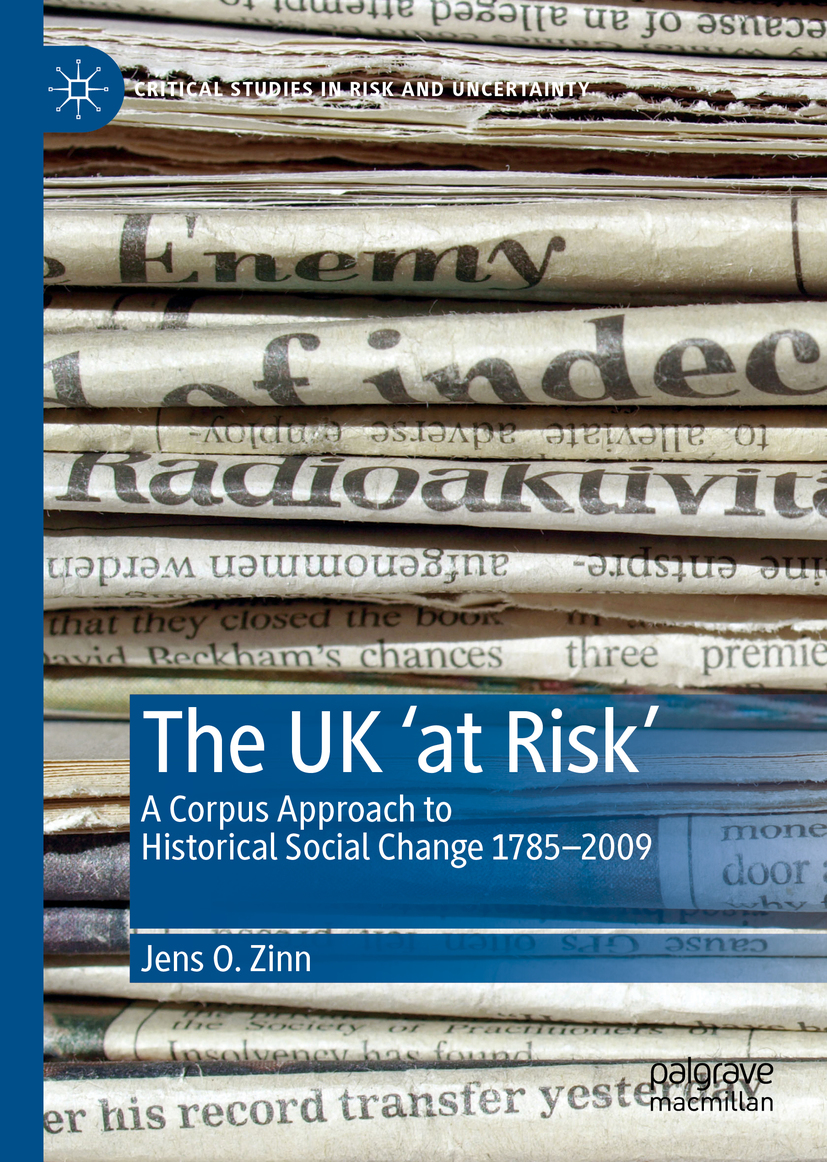Critical Studies in Risk and Uncertainty
Series Editors
Patrick Brown
University of Amsterdam, Amsterdam, The Netherlands
Anna Olofsson
Mid Sweden University, stersund, Sweden
Jens O. Zinn
University of Melbourne, Melbourne, VIC, Australia
Palgraves Critical Studies in Risk and Uncertainty series publishes monographs, edited volumes and Palgrave Pivots that capture and analyse how societies, organisations, groups and individuals experience and confront uncertain futures. An array of approaches for mitigating vulnerability to undesired futures has emerged within social contexts around the world and across history, with risk being seen as an especially salient technique to have emerged within, while also characterising, processes of modernisation. These approaches have attracted the critical attention of scholars across a wide range of social science and humanities disciplines including sociology, anthropology, geography, history, psychology, economics, linguistics, philosophy and political science. This series will provide a multidisciplinary home to consolidate this dynamic and growing academic field, bringing together and representing the state of the art on various topics within the broader domain of critical studies of risk and uncertainty. It aims to provide cutting edge theoretical and empirical, as well as established and emerging methodological contributions. The series welcomes projects on risk, trust, hope, intuition, emotions and faith. Moreover, the series is sensitive to the broader political, structural and socio-cultural conditions in which particular approaches to complexity and uncertainty become legitimated ahead of others. Explorations of the institutionalisation of approaches to uncertainty within regulatory and other governmental regimes is also of interest.
More information about this series at http://www.palgrave.com/gp/series/15840
Jens O. Zinn
The UK at Risk A Corpus Approach to Historical Social Change 17852009
Jens O. Zinn
School of Social & Political Sciences, University of Melbourne, Melbourne, VIC, Australia
ISSN 2523-7268 e-ISSN 2523-7276
Critical Studies in Risk and Uncertainty
ISBN 978-3-030-20237-8 e-ISBN 978-3-030-20238-5
https://doi.org/10.1007/978-3-030-20238-5
The Editor(s) (if applicable) and The Author(s), under exclusive license to Springer Nature Switzerland AG 2020
This work is subject to copyright. All rights are solely and exclusively licensed by the Publisher, whether the whole or part of the material is concerned, specifically the rights of translation, reprinting, reuse of illustrations, recitation, broadcasting, reproduction on microfilms or in any other physical way, and transmission or information storage and retrieval, electronic adaptation, computer software, or by similar or dissimilar methodology now known or hereafter developed.
The use of general descriptive names, registered names, trademarks, service marks, etc. in this publication does not imply, even in the absence of a specific statement, that such names are exempt from the relevant protective laws and regulations and therefore free for general use.
The publisher, the authors and the editors are safe to assume that the advice and information in this book are believed to be true and accurate at the date of publication. Neither the publisher nor the authors or the editors give a warranty, express or implied, with respect to the material contained herein or for any errors or omissions that may have been made. The publisher remains neutral with regard to jurisdictional claims in published maps and institutional affiliations.
Cover illustration: stockeurope / Alamy Stock Photo
This Palgrave Macmillan imprint is published by the registered company Springer Nature Switzerland AG
The registered company address is: Gewerbestrasse 11, 6330 Cham, Switzerland
Acknowledgements
This publication is based on research conducted at the Economic and Social Research Council (ESRC) centres Corpus Approaches to Social Science (CASS) at Lancaster University (July 2016December 2018) as part of a Marie Skodowska-Curie Individual Fellowship Understanding the discourse-semantic shift towards risk in the UK and Germany (UnRI) (Grant Number 701836, H2020-MSCA-IF-2015). I am grateful for the funding I received from the ESRC which enabled me to move from Australia to Europe and to develop my skills in corpus research. I would also like to thank Tony McEnery, Patrick Brown, Tom Baker and two anonymous reviewers for their helpful comments on an earlier version of the manuscript and Julia Cook, Liz Dean and Anna Anderson for their constructive suggestions to further improve the manuscript in content and style. It is always a pleasure to work with such inspiring colleagues.
Abbreviations
/k
/1000
BBC
British Broadcasting Corporation
BSE
Bovine spongiform encephalopathy (Mad Cow Disease)
CADAAD
C ritical A pproaches to D iscourse A nalysis A cross D isciplines
CASS
Corpus Approaches to Social Sciences
CL
Cognitive Linguistics
CQPweb
Corpus Query Processor
ESRC
Economic and Social Research Council
f
frequency
FS
Frame Semantics
FSA
Food Safety Agency
H1N1
A influenza virus subtype H1N1 also known as swine flu
IPCC
Intergovernmental Panel on Climate Change
LL
Log likelihood
LR
Log ratio
NGO
Non-Governmental Organization
NHS
National Health Service
OCR
Optimal Character Recognition
SFL
Systemic Functional Linguistics
vCJD
Variant CreutzfeldtJakob disease
w.p.m.
words per million
WHO
World Health Organization
List of Figures
List of Tables
The Author(s) 2020
Jens O. Zinn The UK at Risk Critical Studies in Risk and Uncertainty https://doi.org/10.1007/978-3-030-20238-5_1
1. Introduction
Jens O. Zinn
(1)
School of Social & Political Sciences, University of Melbourne, Melbourne, VIC, Australia
The notion of at risk has become a defining feature of discourse in the UK in recent decades, permeating all kinds of social domains. Politicians, social workers and parents are concerned about youth at risk (e.g. Youth at Risk UK ).
It is one thing to show that at risk has become pervasive in present-day societies but another to understand the reasons for the proliferation of at risk constructs in public debate. Has life essentially become riskier, as the increasing number of floods and recent heatwaves seem to indicate? Or do growing but unfounded concerns about the future foster at risk communication? Do organisations which were set up to protect us, for example the World Health Organization (WHO) , tend to exaggerate risks in order to find more (financial) support for their mission?) challenge the idea that the ways in which people perceive and respond to risk differs largely nowadays compared to, for example, antiquity. Then too, people exposed themselves to harm for a purpose or an expected gain, or when their life required responses to major threats. People have always had to deal with uncertain and disastrous futures and have always tried to prevent the worst. Nevertheless, the central question remains, why has the

